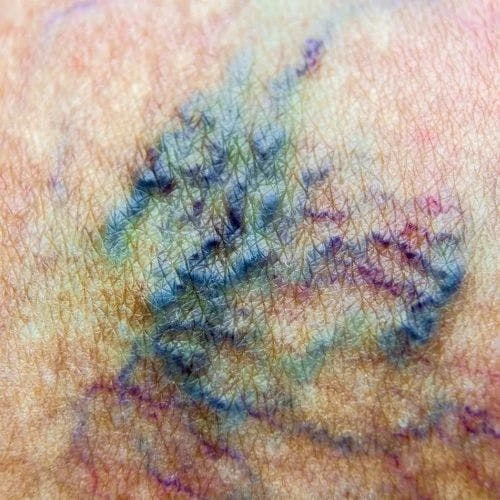Why Is My Vaginal Area Dark?
With time we all expect to see a few age spots, sometimes called liver spots, or a darkening are usually on the hands, face, arms, or other areas that were overly exposed to the sun. However, it may come as a surprise if you see the area around your genitals becoming darker. While it is gradual, it may be a bit shocking when you finally notice it.
The good news is that it is this is usually a normal process in aging and there is nothing to be concerned about. It is called hyperpigmentation. The color can be slightly different from one woman to another and women with paler skin tend to have less differentiation than others. Darker skin will appear more brown. It will affect the labia, scrotum, and anus.

Want to learn more? FOLLOW OUR DOCTORS ON INSTAGRAM HERE!
There can be several reasons for vaginal skin discoloration
The vaginal area may be dark for a variety of different reasons. It does not necessarily mean that something is very wrong. The individual female anatomy of each person can vary. If you have any concerns be sure to check with your doctor.
Hormones
The skin naturally produces melanocytes which, in turn, forms melanin, which is the same stuff that gives our hair, eyes, and skin its color. In the genital area, this substance is particularly sensitive to hormones. As our hormones change during puberty, pregnancy, and menopause, the color can increase. In addition to the genital area, it can also cause darkening around the areolae of the breasts and even your anus.
Friction
Intercourse creates friction and that will cause the melanocyte to increase in activity, creating more dark areas. Skin folds in the groin can also become darker from daily rubbing against each other. Some hair removal products and shaving will have the same effect. If the area becomes inflamed like from a yeast infection or ingrown hair, this can have the same color change.
Age
While it may seem like a fallback excuse, the fact is that getting older changes a lot of things, including pigmentation. It is an accumulation of repeated trauma from shaving or intercourse and hormonal changes through the years.
Acanthosis Nigricans
Acanthosis nigricans is a skin condition characterized by dark, thick, and velvety patches of skin. These patches typically appear in body folds and creases. They can be found in the neck, armpits, under the breasts, as well as in the vaginal area and groin. Acanthosis nigricans is not a disease itself but is often a sign of an underlying health condition.
The most common cause of acanthosis nigricans is insulin resistance, which is often associated with type 2 diabetes. Insulin resistance occurs when the body’s cells become less responsive to insulin, leading to higher levels of insulin in the blood. This can result in the overgrowth of skin cells and the development of acanthosis nigricans.
In addition to diabetes, acanthosis nigricans can also be associated with other medical conditions, such as obesity, polycystic ovary syndrome (PCOS), hormonal disorders, certain medications, and, in rare cases, cancer.
The diagnosis of acanthosis nigricans is usually based on a physical examination of the affected skin. If an underlying medical condition is suspected, your doctor may order more tests to figure out the cause
Treatment For Dark Vaginal Area
As a preventive measure, you can try to lessen the friction to minimize the darkening. Some suggestions are:
• Avoid tight clothing especially underwear
• Moisturize your skin
• Limit the amount of sweat wicking clothing you wear
• Avoid excessive hair removal including waxing and shaving. This can cause inflammation and folliculitis (red bumps or pimples caused by bacteria or infection).
As mentioned, this is not dangerous in any way. If you think it is due to some inflammation, keep close watch to be sure there is no infection. Keeping the area clean and dry will help.
However, any sudden or drastic change should warrant a phone call to your doctor’s office. They will probably run some tests to rule out any drastic systemic changes or pathology that caused the unexpected occurrence. If there is itching it could be a reaction to some product or an infection.
If you feel compelled to pursue this further, check with a dermatologist about safe options. This is not a time for home remedies or suggestions from the internet. Also, it is important to be sure that it is your sole decision and not because someone else didn’t care for it.
Summary:
It is normal to have questions about your vagina and vulva. From differences in color to having vaginal skin tags, these all are normal concerns. Fortunately, in most cases, they are usually benign changes. However, if anything ever concerns you be sure to check with your doctor.
We discuss products we think are useful to people. If you buy something through our links, we may earn a commission. Remember to check with your personal physician to see if a product recommended is right for you.








